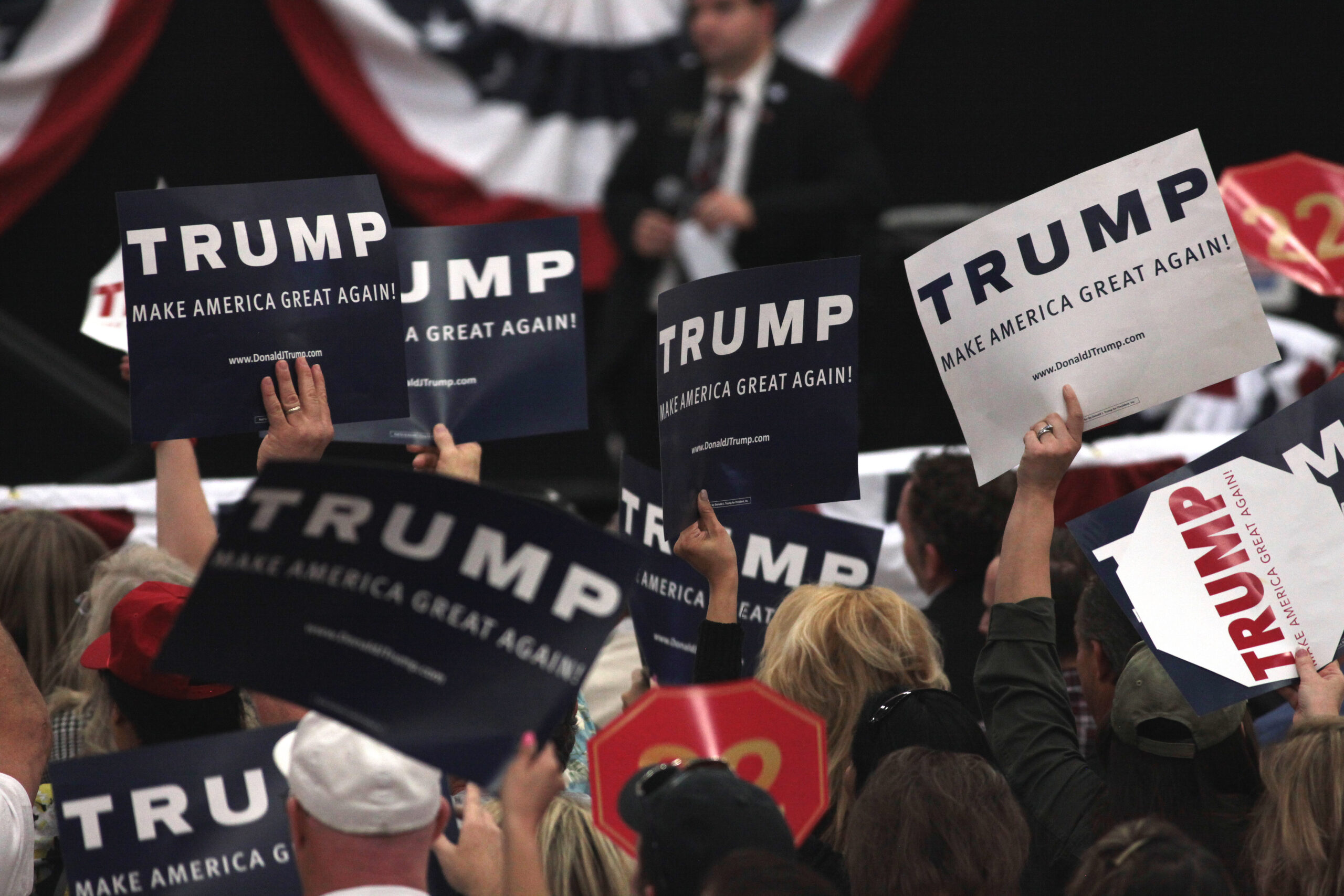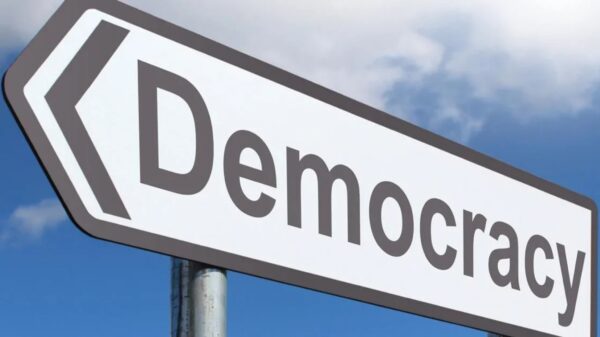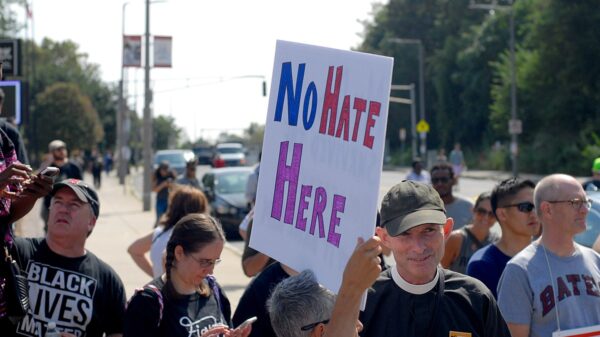Staff Writer Simon Nora-Dreyfus discusses the recent film ‘The Apprentice’ and its potential political influence on the US public, noting that it will likely have little effect on changing the minds of Trump supporters.
An Interesting Timing
Since last Friday, the much-anticipated Trump biopic, ‘The Apprentice’ directed by Ali Abbasi, is out in the UK theatres. It has been available in the US since 11 October – perfectly in time between the iconic Harris-Trump presidential debate and the historical election on 5 November.
Although one might ask whether the film could reshuffle the cards in favour of Kamala Harris, I’ll try to explain why I don’t believe it will – even if, by miracle, Trump-committed electorates watched it.
The movie, starring Sebastian Stan as the former US President, recalls not so much Trump’s entire career as one would expect, but rather a key moment when ‘Donald became Trump’, focusing on his debut as a lost heir to daddy’s real estate business, seeking money and successful people in 1970/80s New York.
To this extent, the film gives us two hours of Trump acting as a wannabe leader but failing to be one. The pretension of the character contrasts with the humiliation he embodies. Comic scenes in which Trump is ridiculously vomiting, falling or getting a hair transplant might be perversely enjoyable if you don’t value Trump as a hero. However, I would argue that the comedy aspect is intended only for the anti-Trump audience; for his supporters, it could well serve his own ‘from a loser to a killer’ narrative.
The Roots of Trump’s Mythology
‘The Apprentice’ dives into New York spheres of power when the young Donald meets the ultraconservative lawyer Roy Cohn whom has been his mentor (if not his creator from A to Z) as a public figure.
Cohn’s recipe to maintain power – “deny everything”, “attack, attack, attack” and “never admit defeat, always claim victory” – is coherent with Trump’s principles we know and observe today. This is especially relevant in terms of social media and public appearance, including the allegations of violence incitement after losing the 2020 election. Moreover, the emphasis on Cohn’s role in the movie seems to suggest that Trump is not a self-made man but rather a construction by the powerful advisor of Richard Nixon and Ronald Reagan. Still, I believe a pro-Trump viewer is likely to notice mainly the ‘brohood’ dimension of Trump and Cohn’s relationship.
Trump builds his electoral discourse, in 2024 even more so than in previous years, on a masculinist community tied to the far-right and compatible with the billionaire’s narrative of a self-made man. This year, Trump has showcased his friendship with billionaire Elon Musk and taken part in interviews with polarising influencers from the ‘manosphere’. While Republicans have made fun of Tim Walz masculinity, Trump aims to represent the ‘traditional masculine ideal’, claiming that “manhood is under attack“.
In this context, while Trump stans might indeed feel mocked by a liberal filmmaker when confronted with ‘The Apprentice’, it’s hard to tell whether the film will actually prompt them to notice anything problematic about Trump’s ‘macho’ behaviour.
A Manufactured Transparency
But how to deconstruct Trump’s made-up narrative? How to tell the story of a man who’s already a fictional character, overrepresented to the public eyes? The TV reality show ‘The Apprentice’, which the film lends its title from, specifically shaped the perceptions of Trump’s leadership. Yet, although this must have been a challenge for the creators, the film manages to smartly maneuver between the oft-repeated story of the billionaire and the dark means he took to achieve this end. Corruption, blackmail, low blows and a vampirisation of power taint the environment in which Ali Abbasi’s Trump evolves.
From my observation, many aspects of the portrait drawn by ‘The Apprentice’ could influence US spectators to perceive Trump as a rather unethical human being and consequently an undesirable candidate. The film portrayal of Trump suggests that he is less of a politician than an arrogant man for whom running for the presidency is just a follow-up step. One might also realise that the billionaire has cut himself off from the ‘real’ world. The film takes place in magnificent settings that show his gilded cage and isolation in a privileged social circle. This dark American dream is escalating as Trump becomes more and more vile, cruelly betraying his family and those who really made him.
Yet, the artificial transparency of Donald Trump, constructed for many decades, has lead numerous Americans to consider him honest and reliable, turning his notorious scandals into unbeatable weapon against any political opponent.
To give an example: the public knows that the former President and current Republican nominee faced lawsuits for racial discrimination related to housing in Trump Village. It’s not so much about showing the facts that could shock convinced Trump supporters enough to change their vote – except maybe for the young audience.
Is the film intended to have a political impact?
Ali Abbasi said he aims to “capture the humanity of these people,” focusing primarily on understanding Trump’s psychology as an individual.
Asked by the BBC whether ‘The Apprentice’ could change the outcome of the US election, the filmmaker said: “In some small way, I think it could move the needle on how people feel [about] or perceive him, but the film is not a political act, it’s a story.”
To appreciate this new take on the Republican candidate, I believe one needs to come into the movie theatre open to a different perspective. Yet, this scenario might be an unlikely if a staunching Trump-supporter were to sit down at one of the screenings.
Though ‘The Apprentice’ has a bias, it doesn’t aim to convince anyone to vote for a particular candidate. It’s not propaganda. Instead, it presents a subjective portrayal that challenges our assumptions about a man we think we know – in the end, this may be what art is all about.



















